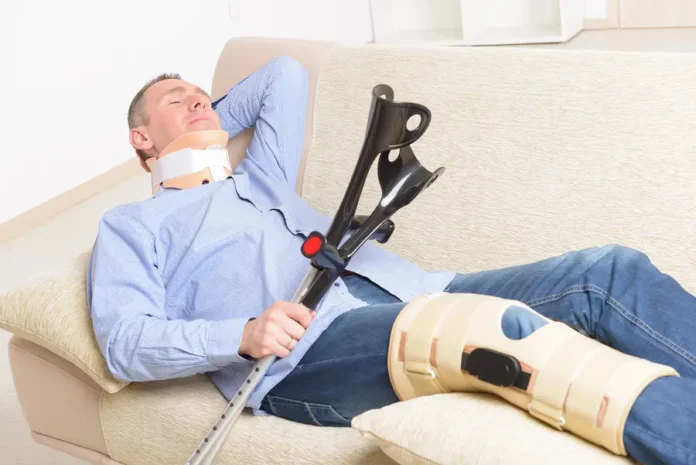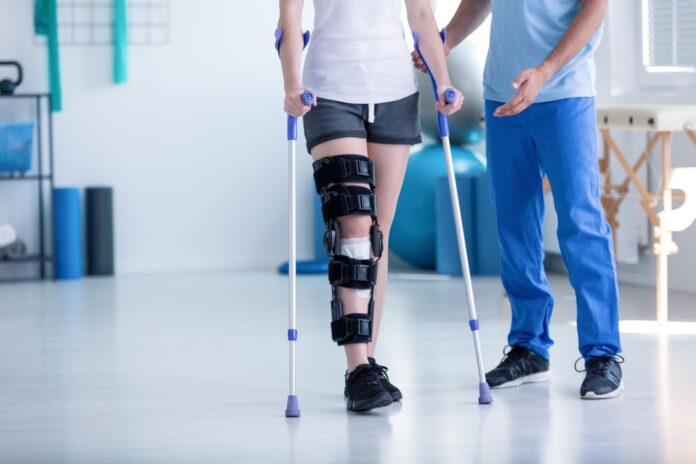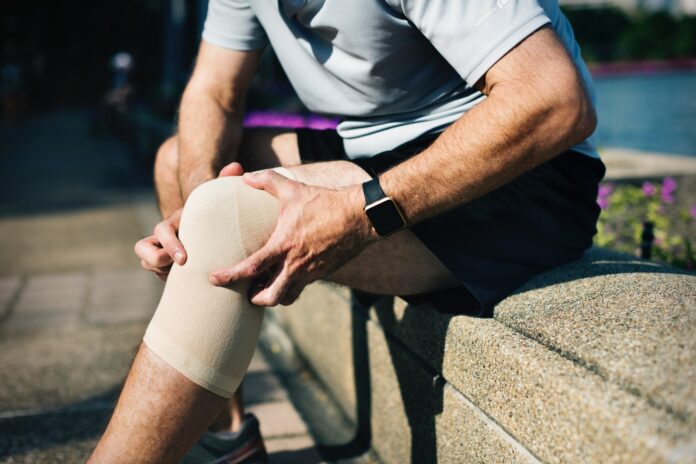Motorcycle accidents can result in various injuries, including knee injuries such as torn ligaments. The knee is a complex joint that consists of bones, cartilage, tendons, and ligaments. When a motorcycle accident occurs, the impact can cause severe trauma to the knee joint, resulting in a torn ligament.
This blog will discuss knee injuries, including torn ligaments, that can occur after a motorcycle accident. So continue reading the article and find important information.

Knee Injuries After a Motorcycle Accident
Motorcycle accidents can cause various types of knee injuries. One of the most common injuries is a torn ligament. Ligaments are tough, fibrous bands that connect bone to bone and provide stability to the joint. When the knee is subjected to an impact, the ligaments can tear, resulting in pain, swelling, and instability.
The anterior cruciate ligament (ACL) is one of the most commonly injured knee ligaments in motorcycle accidents. The ACL is a cruciate ligament that helps to stabilize the knee joint. When the ACL is torn, the knee can become unstable, making it difficult to walk or participate in physical activities.
Another commonly injured ligament is the medial collateral ligament (MCL). The MCL is located on the inside of the knee joint and helps to stabilize the knee. When the MCL is torn, the knee can become unstable, and the joint may be painful and swollen.
Knee injuries can also cause damage to the meniscus. The meniscus is a cartilage pad that cushions the knee joint and helps to distribute weight evenly across the joint. When the meniscus is torn, it can cause pain, swelling, and stiffness in the knee.
Treatment for Knee Injuries
If you have sustained a knee injury in a motorcycle accident, it is essential to seek medical attention promptly. Your doctor will evaluate your injury and develop a treatment plan based on the severity of the injury.
Treatment for knee injuries can vary depending on the type and severity of the injury. In some cases, conservative treatment such as rest, ice, compression, and elevation may be enough to manage the injury. However, more severe injuries may require surgery.
Surgical treatment for knee injuries typically involves repairing or reconstructing the damaged ligament. In some cases, a graft may be used to replace the torn ligament. Rehabilitation and
physical therapy may also be necessary to restore range of motion and strength to the knee joint.

Preventing Knee Injuries in Motorcycle Accidents
Prevention is always the best approach to avoid knee injuries in motorcycle accidents. Here are some tips to help prevent knee injuries in a motorcycle accident:
- Wear protective gear, including a helmet, gloves, and knee pads.
- Be alert and aware of your surroundings at all times.
- Avoid riding in adverse weather conditions.
- Maintain a safe speed and distance from other vehicles on the road.
- Take a motorcycle safety course to improve your riding skills.
Recovery and Rehabilitation
Recovery from a knee injury can be a lengthy process. After surgery or conservative treatment, rehabilitation and physical therapy are essential to restore strength and mobility to the knee joint. Rehabilitation typically involves a combination of exercises to improve range of motion, build strength and stability, and restore balance and coordination.
Physical therapy can also help to reduce pain and swelling in the knee joint. Your physical therapist may use various techniques such as massage, ultrasound, or electrical stimulation to promote healing and reduce inflammation.
During rehabilitation, it is essential to follow your doctor’s instructions carefully to ensure that you do not reinjure your knee. Your doctor may advise you to avoid certain activities, such as running or jumping, until your knee has fully healed. It’s very important to follow the doctor’s requirements, because you will definitely do the wrong thing.

Long-Term Effects
Knee injuries and torn ligaments can have long-term effects on your health and well-being. If left untreated or not properly rehabilitated, knee injuries can lead to chronic pain, instability, and even arthritis.
Arthritis is a common complication of knee injuries, especially those that involve the ACL. Arthritis is a condition that causes inflammation and degeneration of the joint, resulting in pain, stiffness, and reduced mobility. Arthritis can develop years after a knee injury and can significantly impact your quality of life.
Pre-existing Conditions
If you have pre-existing conditions such as arthritis or knee pain, a knee injury from a motorcycle accident can exacerbate these conditions. In some cases, a pre-existing condition can also increase the risk of a knee injury in a motorcycle accident.
If you have a pre-existing condition, it is essential to discuss your concerns with your doctor before riding a motorcycle. Your doctor can advise you on the best course of action to reduce the risk of injury.

Conclusion
Knee injuries such as torn ligaments are common in motorcycle accidents. If you have sustained a knee injury, it is essential to seek medical attention promptly to prevent further damage and complications. Treatment for knee injuries can vary depending on the type and severity of the injury. Prevention is always the best approach to avoid knee injuries in motorcycle accidents. By taking the necessary precautions and wearing protective gear, you can reduce the risk of knee injuries and other injuries in a motorcycle accident.









